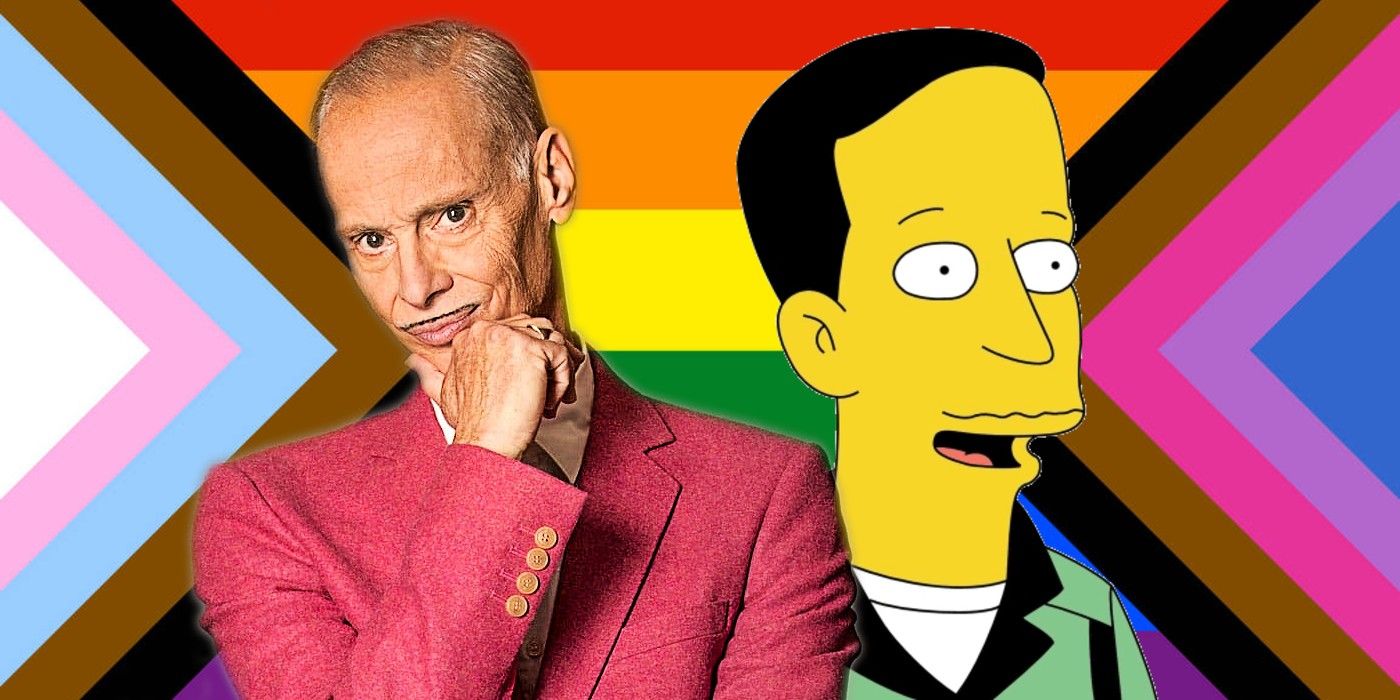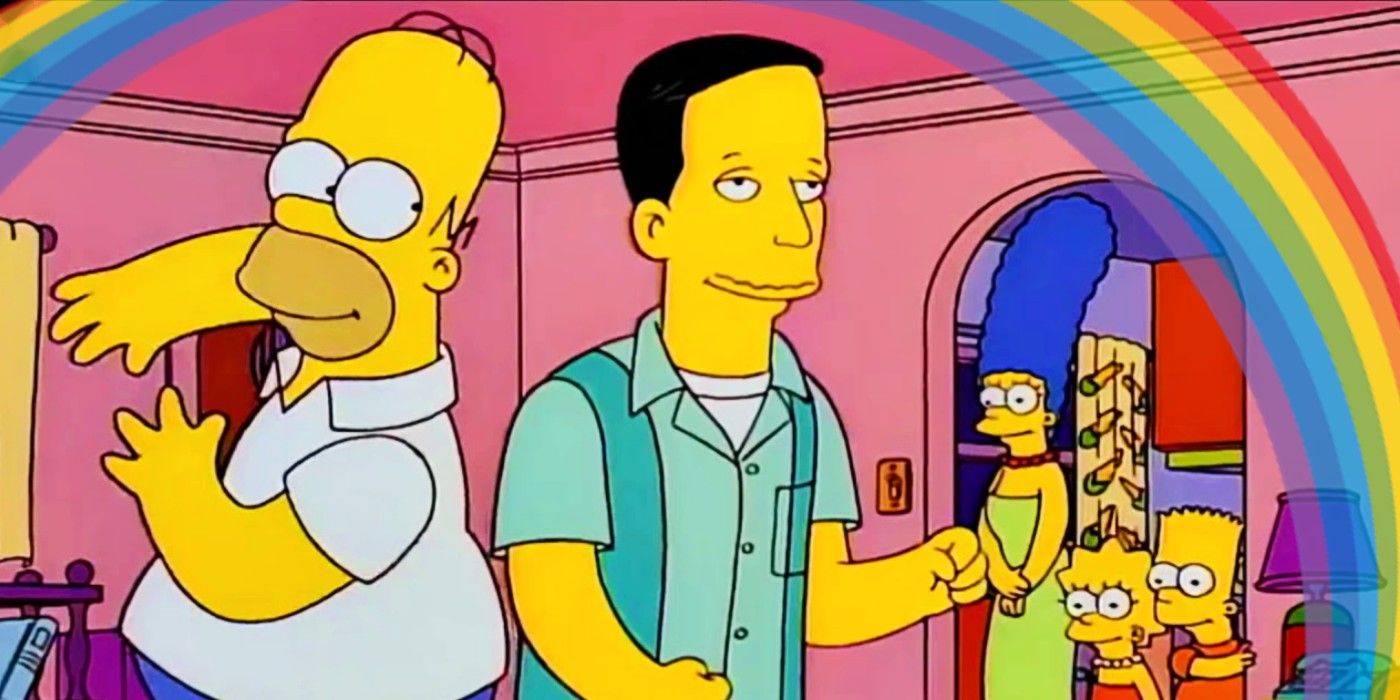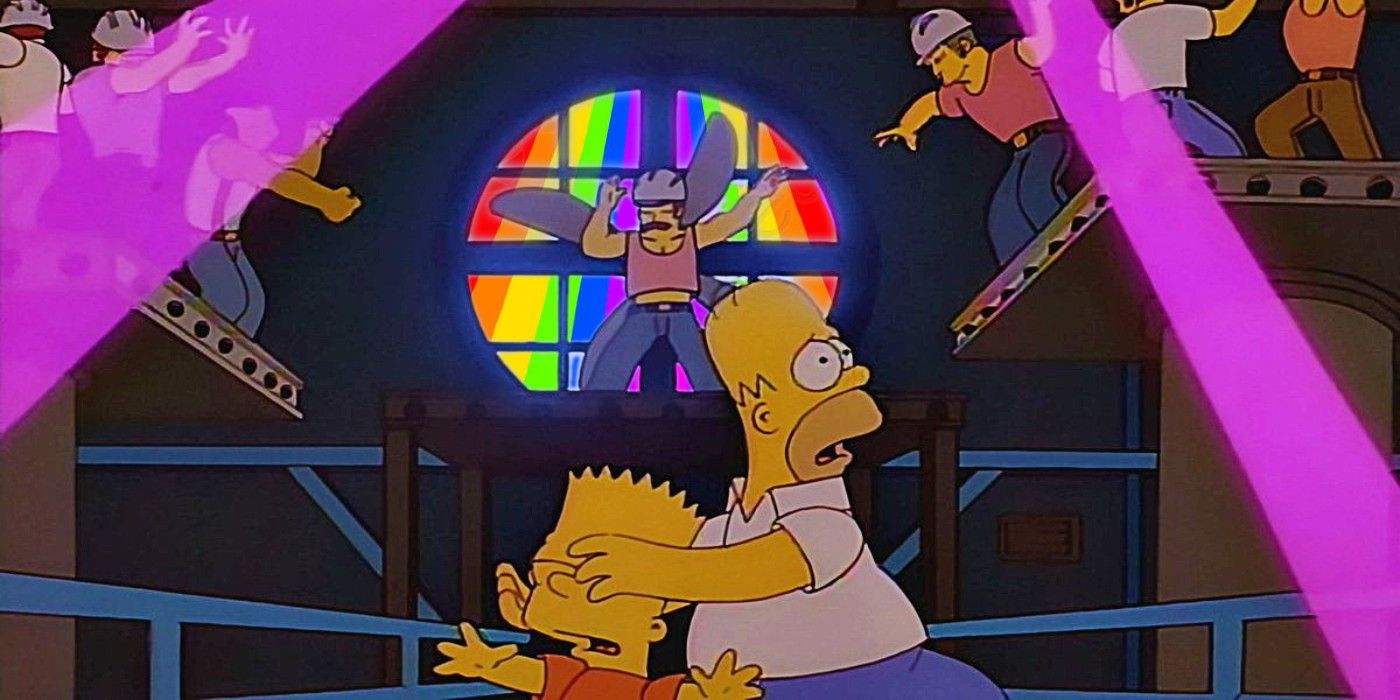The Simpsons And John Waters: Deconstructing Homer's Phobia

The Simpsons in its golden age of the ’90s was known, and sometimes reviled, for its controversial use of adult themes in an animated program. The inclusion of John Waters and focus on being gay in the 1997 episode of the eighth season “Homer’s Phobia” was no exception. And yet, it became one of The Simpsons' most highly regarded episodes that is fondly remembered by the fans as clear as the day it first aired.
While “Homer’s Phobia” has been celebrated over the decades for being one of the first sitcoms to speak to homosexuality without the sanctimony audiences had become accustomed to in other works, it was the impact in the subtlety of correction it brought to its 18 to 35 audience that allowed the episode to age so beautifully.
The date was February 16th, 1997. Still two months until “Ellen Morgan,” played by Ellen Degeneres, came out on the show Ellen. Still seven years before The L Word would feature a cast of lesbian characters. Still thirteen years before the state of Vermont offered Civil Unions. Still twenty-three years until Sarah McBride would become the first transgender state senator. LGBTQ+, or “gay issues” as they were more commonly referred to in the ’90s, though not invisible, were still treated like an outlier. Many sitcoms, even as early as 1971 in the All in the Family episode “Judging Books by Covers”, have included a “gay” storyline at some point. What The Simpsons did that was different, was not just focus the episode on gay themes, but include one of the most transgressive and widely known LGTBQ+ people of the time: John Waters.
"It's Camp!"

Transgressive doesn’t really encapsulate who John Waters is nor who he was. His collaborations with drag queen Divine (who unfortunately passed in 1988) and series of films serving as love letters to Baltimore (Hairspray possibly being the most accessible with its musical spin-off) pushed the boundaries of raunchy content in films and reinforced in a generation that, yes, they may say you’re weird but who are they to know what weird is?
Currently he exists as the eccentric and empathetic family member in anyone’s pop culture photo album. Before “Homer’s Phobia”, he was the strange, skinny, gay guy in Baltimore with the mustache and the movie with the drag queen who eats dog waste. One might expect the character of “John” in “Homer’s Phobia” to be a series of gags (figuratively and literally) and winks to his sordid filmography. Instead, the character of “John” is John Waters in the sense that John Waters is… just a person.
“Homer’s Phobia” is both a classic "straight meets gay" tale but also incredibly humanizing. The plot of Homer meeting John (voiced by John Waters), the owner of a kitsch secondhand store, and adoring him until the reveal that John is a “ho-mo-SEXUAL” triggers Homer to gay panic that Bart might also be “influenced” by that “gay thing” is a familiar plot in comedy. The protagonist meets a gay person, is horrified, realizes gay is just fine, and life moves on.
Usually in sitcoms, these stories come with a scene underscored by thoughtful music where everybody talks about their experiences and thoughts before getting a drink or ice cream or whatever together. What made “Homer’s Phobia” stand apart was its resistance to wrapping everything in a neat bow while flipping the script on whose orientation is the odd one.
"You Know... It Isn't Natural"

The first half of the episode is the introduction to John who has what would be considered gay mannerisms in that he’s polite, eccentric, and enthusiastic over silly things like retro toy ray guns and their packaging or corn patterned kitchen drapes. It’s a classic generalization, a stereotype that applied in real life has caused considerable difficulty in LGBTQ+ members in balancing their identity with societal expectations of that identity.
Then the episode flips in the second half with Homer going to ridiculous lengths to make sure Bart doesn’t turn gay. These lengths are well-designed stereotypes of straight culture, just as damaging and just as ridiculous. They include Homer sitting Bart down to stare at billboard with a Laramie cigarette ad that features half-naked women pillow-fighting (and panicking harder when Bart was left with a craving for “slim” cigarettes), taking Bart to a steel mill to see real men at work (a mill that turns out to be a gay steel mill) and finally insisting Bart has to kill a deer to become a man on the advice of his bartender who has no wife and no kids. This sort of “if gay culture is weird then so is straight culture” theming was incredibly rare in the ’90s.
Though perceptions and opinions have been widening and changing in the last decade, for a good while the most pervasive lesson about LGBTQ+ people was, basically, it’s not nice to be mean to someone just because they’re weird. When the lesson should be, and is becoming more widely accepted to be, being LGBTQ+ isn’t abnormal. It’s another normal. “Homer’s Phobia” found a way to make this concept funny and, perhaps unintentionally, communicate the importance of the change of perspective for the age group coming into influence now.
Instead of bonking the 18 to 35-year-olds (and younger) over the head with sentiment and shame, in one line delivered without malice and with empathy by John Waters sums up the mood of the culture and polite frustration under the cartoon: “Homer, what have you got against gays?”
Weird Saves The Day Again

Why indeed did anyone or does anyone hate gays? Especially since any grouping by sexual orientation has its weirdoes as demonstrated by the finale of Homer, beset by the pinned reindeer he tried to force Bart to shoot, having to be rescued by the Japanese robot Santa and “good timing” of John. “Homer’s Phobia” wasn’t ahead of the curve as much as it was the episode written from listening to the people it was meant for. And that conversation made it all the more easier to normalize gay representation on TV, in films, and in political office. Homer said it best in the end (albeit with the clumsiness of representing being gay as a choice): “You know, Bart, maybe it's just the concussion talking... but any way you choose to live your life is okay with me.”

Post a Comment